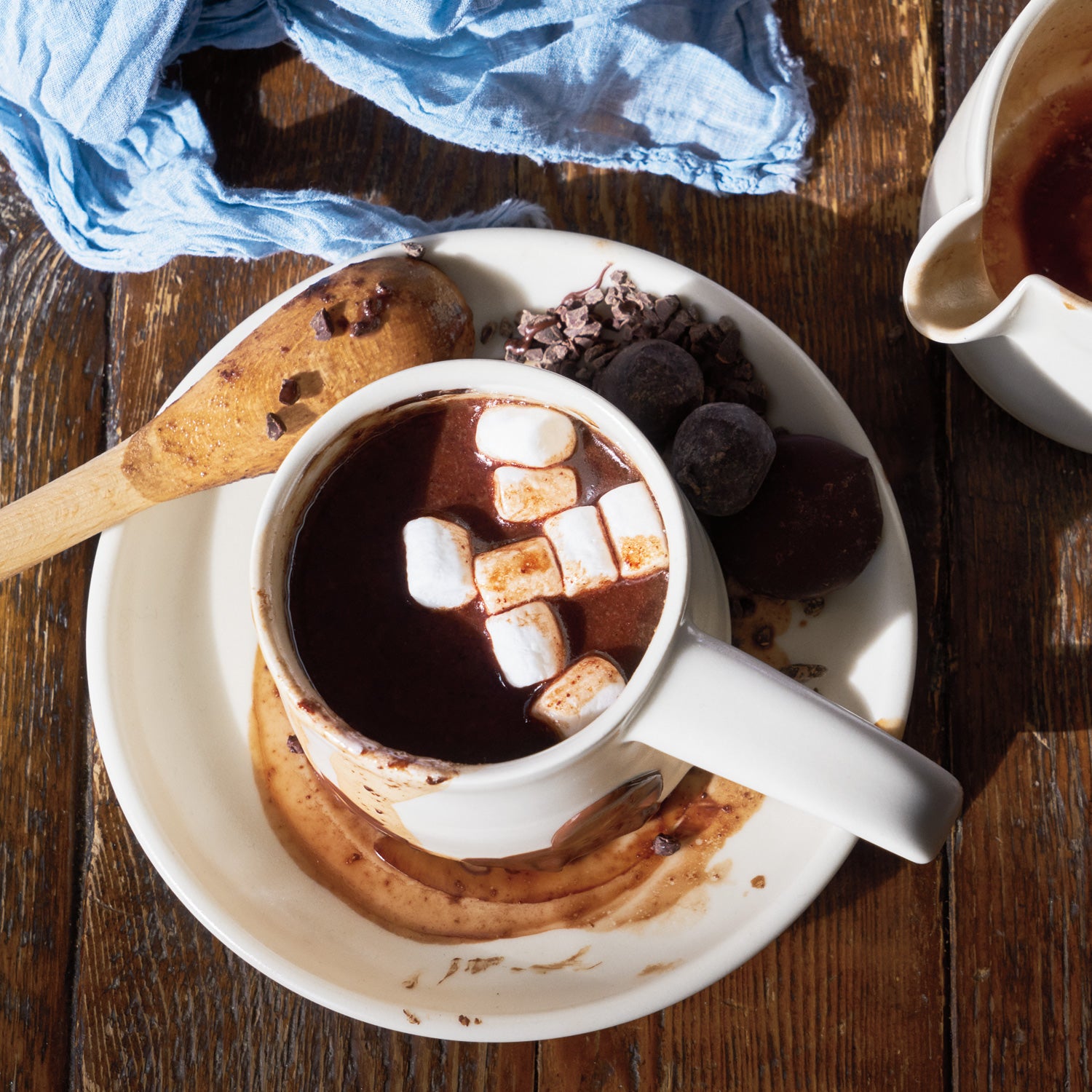More than a thousand years ago, chocolate was consumed one way: Mesoamericans fermented and roasted cacao beans, ground them up, blended them with spices, added water, and whipped it into a thick froth. “It was very bitter,” says Simran Sethi, author of . Though shops in Mexico and Europe have continued to offer similar, sweeter versions of sipping chocolate, Americans are only recently rediscovering its pleasures, thanks to the burgeoning chocolate movement.
“Chocolate is the new craft beer,” says Todd Masonis, cofounder of in San Francisco. Like brewers, chocolatiers want to transform the whole industry, including the drinkable stuff. Shops and coffee bars around the country are now offering $5-and-up glasses of sipping chocolate—both the thick, sweet, European-style drink, made with milk, and the more bitter, water-based Aztec- and Maya-style libations.
Part of the boost in popularity comes from studies that have explored chocolate’s health benefits. Over the past several years, cocoa has been found to have more flavonoids—a type of antioxidant—than red wine or green tea, to lower blood pressure and bad cholesterol, and even to ease perceived soreness after a workout.
“There used to be chocolate houses on every corner,” says Masonis. “Anyone who tries it can see that chocolate has the potential to rise again.”
Where to Indulge
In New York City, go to in SoHo, which offers 11 drinking chocolates. In Los Angeles, try the lavender-infused option at Demitasse. And in Portland, Ore-gon, get the tasting flight at Cacao.
The Spectrum of Drinking Chocolate
From cloying to acerbic.
- Swiss Miss: Hot-cocoa mix
- Mexican champurrado: Masa flour mixed with dark Mexican chocolate, anise, and cinnamon.
- Parisian hot chocolate: A mix of melted bittersweet with whole milk and a little sugar.
- Chocolate a la taza: Thick enough to stand a churro in, bitter enough to complement its flavor.
- Aztec hot chocolate: Cacao nibs coarsely ground with chile and other spices and mixed with water, not milk.
- Cocoa tea: Popular in Saint Lucia; made by steeping roasted cacao nibs and husks in water.


